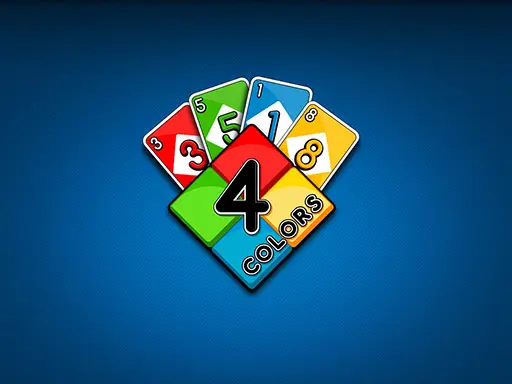
Mancala Classic
Similar Games
Mancala Classic
About Mancala Classic
Mancala Classic brings one of humanity's oldest known board games to the digital age, preserving the elegant simplicity and strategic depth that has captivated players across cultures for thousands of years. Dating back to ancient Egypt around 1300 BCE, mancala games have spread throughout Africa, Asia, and beyond, with numerous regional variations united by the core mechanics of "sowing" and capturing stones. This digital adaptation faithfully recreates the most widely recognized version of the game, sometimes called Kalah, while adding helpful features and learning tools that make it accessible to modern players. The game is played on a board with two rows of six small pits facing each other and a larger store (or mancala) at each end. Each small pit begins with a set number of stones or seeds, typically four. Players take turns choosing one of their pits, removing all stones from it, and distributing them one by one counterclockwise into subsequent pits, including their own store but skipping their opponent's store. The strategic depth emerges from the special rules that follow: if the last stone lands in the player's own store, they get another turn; if it lands in an empty pit on their side, they capture that stone along with any stones in the pit directly opposite. The game ends when all six pits on one side are empty, at which point any remaining stones on the other side go to that player's store. The player with the most stones in their store wins. What sets Mancala Classic apart is its thoughtful implementation of this ancient game. The clean, intuitive interface clearly shows the current board state, with animations that make stone movement easy to follow. For newcomers, an interactive tutorial explains not just the basic rules but also introduces key strategies like planning multiple moves ahead, creating chains of extra turns, and setting up captures. The game offers multiple difficulty levels of AI opponents, from beginners who make straightforward plays to masters who employ sophisticated strategies several moves in advance. For those seeking human competition, both local play on the same device and online matchmaking are available. The visual presentation balances traditional aesthetics with modern design, offering several board themes from classic wooden styles to more contemporary looks. Sound effects provide satisfying feedback for stone movement without becoming intrusive. With its perfect blend of accessibility and depth, Mancala Classic offers endless strategic possibilities within a ruleset simple enough to learn in minutes, making it an ideal game for both quick sessions and extended strategic battles.
Features of Mancala Classic
- ✓Classic Mancala gameplay with traditional rules and mechanics
- ✓Multiple AI difficulty levels from beginner to master
- ✓Local and online multiplayer options
- ✓Comprehensive tutorial and strategy guides
- ✓Various board themes and customization options
- ✓Game statistics tracking your performance over time
- ✓Achievement system for completing specific challenges
- ✓Undo feature for learning and practicing strategies
How to Play Mancala Classic
The Mancala board has two rows of six small pits and two larger stores (mancalas) at the ends
Each player controls the six pits on their side and the store to their right
Begin with four stones in each of the twelve small pits
On your turn, select one of your pits, take all stones from it, and distribute them one by one counterclockwise
If your last stone lands in your store, you get another turn
If your last stone lands in an empty pit on your side, capture that stone and all stones in the opposite pit
The game ends when all six pits on one side are empty
The player with the most stones in their store wins
Pro Tips of Mancala Classic
In Mancala Classic, try to plan moves that end in your store to get extra turns
Pay attention to the number of stones in each pit in Mancala Classic - counting ahead is essential for planning captures
In Mancala Classic, sometimes it's better to leave stones in your back row to prevent your opponent from capturing them
Creating a chain of moves in Mancala Classic where you repeatedly get extra turns can be a powerful strategy
In the early game of Mancala Classic, focus on getting stones into your store rather than setting up captures
Watch for opportunities in Mancala Classic to empty your pits strategically to end the game when you have an advantage
In Mancala Classic, be careful about which pit you choose when multiple options could end in your store - consider the board position you'll leave
The pits closest to your store in Mancala Classic are often strategically valuable as they can more easily lead to extra turns
Player Feedback on Mancala Classic
Mancala Classic perfectly captures the essence of this ancient game. The AI provides a genuine challenge at higher levels, and I appreciate how the tutorial explains not just the rules but actual strategies.
I've played many digital versions of Mancala, and this is by far the best implementation. The clean interface and multiple themes make the experience enjoyable for long sessions.
As someone who never played Mancala before, I found the tutorial in Mancala Classic extremely helpful. The practice mode with move suggestions really accelerated my learning.
I love how Mancala Classic includes historical information about the game's origins. Playing this digital version has given me a new appreciation for one of humanity's oldest games.
Mancala Classic is perfect for quick gaming sessions. Matches move at a good pace, and I appreciate that I can play against the AI when I only have a few minutes to spare.
The online matchmaking in Mancala Classic works perfectly. I always get matched with players of similar skill, and the ranking system keeps me motivated to improve.
FAQs about Mancala Classic
What is the history behind Mancala Classic?
Mancala Classic represents one of the world's oldest known board games, with a rich history spanning thousands of years and diverse cultures. Archaeological evidence suggests that Mancala-type games originated in Ancient Egypt around 1300 BCE, with game boards carved into temple roofs at Kurna and other sites. As trade routes expanded, Mancala Classic and its variants spread throughout Africa, becoming deeply embedded in many cultures where it was often played in pits dug in the earth. The game family that includes Mancala Classic later traveled along trade routes to Asia, with variations appearing in India, Indonesia, and the Philippines. Each region developed its own version of Mancala Classic with slight rule variations, different board sizes, and cultural significance - in some areas, Mancala Classic was used for divination or played during important ceremonies. The name "Mancala" itself comes from the Arabic word "naqala" meaning "to move," though Mancala Classic is known by dozens of different names worldwide including Kalah, Oware, Bao, and Congkak. The version recreated in Mancala Classic is most similar to Kalah, which became popular in the Western world during the 20th century. Anthropologists and historians value Mancala Classic as a window into ancient strategic thinking, mathematical concepts, and cultural exchange, with some calling it the world's first board game family.
What strategies work best in Mancala Classic?
Success in Mancala Classic requires a blend of tactical awareness, planning, and adaptability across different game phases. The extra turn strategy in Mancala Classic focuses on selecting pits that will result in your last stone landing in your store, giving you another move and creating potential chains of turns. This approach in Mancala Classic often involves counting carefully and setting up your board to enable consecutive turns. The capture strategy in Mancala Classic prioritizes moves that end in empty pits on your side, allowing you to capture stones from the opposite pit. Advanced players in Mancala Classic often create setups where a capture also leads to an extra turn, maximizing efficiency. Board control in Mancala Classic involves maintaining more stones on your side while emptying specific pits strategically, limiting your opponent's options while expanding yours. The endgame strategy in Mancala Classic requires careful calculation about when to trigger the game end by emptying your side, which should only be done when you have a clear stone advantage or can capture significant stones in the process. Defensive play in Mancala Classic includes keeping your pits with many stones out of "capture range" - ensuring your opponent's moves can't end directly across from them. The stone distribution strategy in Mancala Classic focuses on spreading your stones to have options on future turns rather than concentrating them in few pits. Adaptability is crucial in Mancala Classic, as the optimal approach changes based on the current board state and your opponent's playing style.
How does the AI work in Mancala Classic?
Mancala Classic features a sophisticated AI system with multiple difficulty levels and distinct playing styles. The Beginner AI in Mancala Classic makes straightforward plays focusing on immediate gains without much forward planning, perfect for new players learning the basics. The Easy AI in Mancala Classic understands fundamental concepts like extra turns and simple captures but doesn't look far ahead or set up complex sequences. The Intermediate AI in Mancala Classic employs basic strategies and can plan 2-3 moves ahead, providing a challenge for casual players who understand the rules well. The Advanced AI in Mancala Classic uses sophisticated evaluation of board positions, plans 4-5 moves ahead, and understands the strategic value of different game states. The Master level in Mancala Classic implements expert strategies with 6+ move lookahead and endgame solving capabilities, challenging even experienced players. Each AI personality in Mancala Classic has distinct playing styles - some prioritize capturing stones, others focus on securing extra turns, while some play defensively to limit your options. The AI in Mancala Classic adapts to your playing style over multiple games, identifying patterns in your strategy and developing counter-approaches. For learning purposes, Mancala Classic includes an AI Insight feature that can explain the reasoning behind the computer's moves, helping players understand strategic concepts.
What variations of Mancala are included in Mancala Classic?
While Mancala Classic focuses primarily on the Kalah variant that's most popular in Western countries, it includes several additional mancala variations from around the world. The standard Kalah mode in Mancala Classic uses a 6+6 board with four stones per pit and follows the rules described in the how-to-play section. The game includes Oware in Mancala Classic, a West African variant played on a 6+6 board where stones are not placed in stores during sowing and capturing works differently. The Bao variant in Mancala Classic represents the complex East African version played on a 8+8 board with multiple phases and special capturing rules. For quick play, Mancala Classic offers a 4+4 board option that follows standard rules but creates faster games with fewer strategic options. The game includes customizable rules in Mancala Classic where players can adjust starting stone count, board size, and specific rule variations to recreate regional versions or create their own. The Challenge mode in Mancala Classic presents special scenarios with modified rules or starting positions that require specific strategies to solve. Each variant in Mancala Classic comes with its own tutorial and historical background information explaining its cultural significance and geographic origins. The game also features a Mancala Explorer in Mancala Classic that introduces players to the diverse family of mancala games through interactive demonstrations of different rule sets from various cultures.
How does multiplayer work in Mancala Classic?
Mancala Classic offers several multiplayer options to accommodate different playing situations. The local multiplayer in Mancala Classic allows two players to take turns on the same device, perfect for face-to-face play with friends or family. Online quick match in Mancala Classic pairs you with a random opponent of similar skill level based on your rating. The friend challenge feature in Mancala Classic lets you send invitations to specific players using a code system or username search. Ranked matches in Mancala Classic affect your global rating and place you in leagues from Bronze to Grandmaster based on performance. The tournament mode in Mancala Classic organizes bracketed competitions with multiple players and awards special profile badges to winners. During online games, Mancala Classic includes an optional timer system with several settings from relaxed (2 minutes per move) to blitz (15 seconds per move). The game also features a correspondence mode in Mancala Classic where players can take their turns asynchronously over days, ideal for busy schedules. For social play, Mancala Classic includes a chat system with preset messages and emoji reactions to communicate with your opponent.
Is Mancala Classic suitable for children?
Yes, Mancala Classic is exceptionally well-suited for children and offers significant educational benefits while remaining entertaining. The simple rules of Mancala Classic (pick up stones and distribute them around the board) are easy for children as young as 5-6 years to understand and enjoy. The game includes a special Kids Mode in Mancala Classic with simplified visuals, helpful guides, and automatic assistance for younger players. Mancala Classic offers valuable educational benefits by developing counting skills, strategic thinking, planning ahead, and understanding cause-and-effect relationships. The game naturally teaches mathematical concepts in Mancala Classic through the distribution of stones, counting, and keeping track of totals. For family play, Mancala Classic includes handicap options that can balance the game between players of different ages and skill levels. The game contains no violent content, in-app purchases, or inappropriate material in Mancala Classic, making it safe for children. Many educators recommend Mancala Classic as a learning tool that improves mathematical thinking and concentration in an engaging format. The cultural and historical context provided in Mancala Classic also offers educational value about world cultures and ancient games.
What customization options are available in Mancala Classic?
Mancala Classic offers extensive customization options to personalize your gaming experience. The board themes in Mancala Classic range from traditional wooden designs to stone, metal, and various cultural styles inspired by regions where mancala games originated. Stone designs in Mancala Classic can be customized with different colors, materials, and patterns from glass beads to seeds, gems, or traditional playing pieces. The game includes animation settings in Mancala Classic to adjust the speed and style of stone movement and captures. Sound customization in Mancala Classic allows you to select different audio feedback for moves, captures, and background ambience. The interface layout in Mancala Classic can be adjusted with options for information display, board orientation, and control placement. Accessibility features in Mancala Classic include high contrast modes, colorblind-friendly designs, and screen reader compatibility. You can save multiple profiles in Mancala Classic with different customization settings for various playing situations or preferences. The game also offers seasonal and special event themes in Mancala Classic that provide limited-time visual styles to keep the presentation fresh.
How does the ranking system work in Mancala Classic?
The ranking system in Mancala Classic uses a sophisticated algorithm to track player skill and ensure balanced matchmaking. When you first play online in Mancala Classic, you complete placement matches that establish your initial rating based on performance against players of various skill levels. Your rating in Mancala Classic is represented by a numerical score (typically starting around 1200) that increases or decreases after each match based on the outcome and your opponent's rating. The amount of rating change in Mancala Classic depends on the expected outcome - beating a higher-rated player earns more points than defeating a lower-rated opponent. The system places players in leagues in Mancala Classic (Bronze, Silver, Gold, Platinum, Diamond, and Grandmaster) based on their rating range, with visible progression as you climb the ranks. Mancala Classic includes seasonal resets that partially compress the rating distribution, preventing inflation while maintaining the general skill hierarchy. For competitive players, Mancala Classic features a leaderboard showing the top 100 players globally and regionally. The game also tracks your percentile ranking in Mancala Classic, showing how you compare to the overall player population. Beyond simple win-loss records, the ranking system in Mancala Classic also considers performance metrics like average stone advantage, capture efficiency, and endgame execution to provide a more nuanced assessment of player skill.





